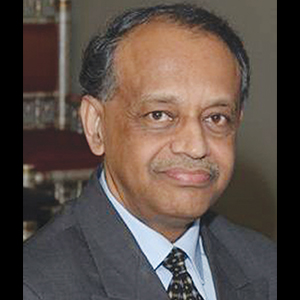
By George Abraham
The world has indeed taken notice of how well Kerala has handled the Coronavirus threat so far and widely applauded for steps the state has undertaken to mitigate the crisis. However, as the virus fear sweeps through Kerala, some of the stories coming out of my home state are very disconcerting. It doesn’t bring out the best of humanity, especially from those who have lived and prospered on the largesse of the NRI remittances and significant revenue from the tourism boom.
I am referring here about the treatment some of the Keralites meted out to NRIs and foreign nationals who are either returning from foreign countries or trapped in the state due to state-imposed travel restrictions. Most of the NRIs are Indian citizens, and they have the right to return to their home country. Some of the tourists might have been caught off guard and stranded by these fast-moving developments around the Coronavirus or made the trip regardless due to their long-term planning for a dream vacation or fearing potential losses in terms of prepaid bookings.
Kerala’s prosperity in the last five decades can be primarily attributed to the ‘money-order economy’ where the foreign currency remittances fast-tracked the socio-economic development in the state. According to World Bank reports, India retained its position as the world’s top recipient of remittances with its diaspora sending a whopping 79 Billion dollars back home in 2018. Kerala tops in that category, with almost 20% of that remittances directly going to the state. The money the NRIs send home helps not only the families but also the balance of payments of the country.
The flow of that amount of money into the Kerala economy by way of remittances has a very significant impact on the living conditions of its citizens. It is important to note that 80% of emigrants from Kerala went to the Gulf, and they contribute a large chunk of the remittances that flow into Kerala. According to a previous study done by the Middle East Institute, remittances were 1.74 times the revenue receipts of the state. Remittances in Kerala were 5.5 times the finance received from the central government and 36 times the exporting earnings from cashews and 30 times that from marine products.
The study also pointed out the impact of remittances to Kerala and how it has manifested in household consumption, saving and investment, the quality of houses, and the possession of modern consumer durables. Remittances also played a role in enhancing the quality of life and contributing to a high human development index for Kerala in terms of education and health, along with the reduction of poverty and unemployment.
The overall result for the state has been quite impressive. Kerala’s rating for the Human Development Index (HDI) 0.790, is the highest in India, resulting from the vast improvements state has made in the fields of sanitation, health, education, and poverty reduction. In 2016, the state was also declared ‘open defecation free’ with toilets in every household. The female literacy rate in Kerala stands at 94%, and it is the only state in the union where the female population exceeds the male population.
Nevertheless, the stories being aired about some of the experiences of returning NRIs and stranded tourists at these difficult times are heart-wrenching. It is critical that the returning NRIs ought to be truthful to the authorities and mindful of their vulnerability in terms of spreading this virus. They need to behave responsibly as per the rules and be accountable for their actions. However, they shouldn’t be blamed for the failures of the state from properly screening all arrivals. It is the responsibility of the authorities to ascertain origins of travel and routings and to decide whether anyone should be quarantined. The infrastructure should have been already in place at all airports for health screenings, and the medical personnel should have been fitted with protective gear.
Instead, what we are witnessing is an act of demonization of some of those who happened to carry the Coronavirus, probably of no fault of their own. Some of them might have contracted the virus during the travel and possibly even asymptomatic upon their arrival. Therefore, there is very little justification for the harassment and name-calling they were subjected to and the contempt with which they have been treated.
The experiences of some of the foreign tourists at the hands of my fellow Malayalees are even more appalling. An alien couple was found to be traumatized and crying incessantly in the middle of a road as they haven’t had food for three days. According to the reports, they were denied food or lodging by panicky guest houses and hotels across the state and finally had to be rescued by the Police department. There were stories of tourists sleeping in cemeteries because their reservations to the hotels were not being honored.
It is not only a phenomenon in Kerala but also across the country where foreign tourists are being evicted from their apartments, made to feel unwelcome in Taxis, asked to leave restaurants, and have been subjected to hostile looks in public spaces. Social media also bears some responsibility in spreading this panic-driven disinformation that all foreign tourists are carries of the Coronavirus. Even students from Northeast are not spared this time around as many have experienced harassment at the hands of other students, and their interactions were marked by suspicion and rudeness often bordering racism.
Finally, Keralites are one of the largest groups of economic refugees on this planet, constantly exploring opportunities and daring to break barriers to travel to the ends of the earth to better themselves. We do expect those foreign countries and their nationals to treat us fairly, provide us with opportunities, respect our cultures, and honor our religious traditions. Besides, we also request them to transfer part of their wealth to our state so that folks who are left behind may do better with their own lives as well.
Therefore, it is obligatory to keep our end of the bargain in treating foreign tourists as well as returning NRIs fairly in good times as well as bad. We simply cannot have it both ways! I am encouraged to see that the government of Kerala, which saw more than a million tourists set foot in the state in 2018, came out to denounce such attacks on foreign tourists asking locals not to see them as carriers of virus. A national crisis often reveals the character of a people. Kerala is often dubbed as ‘God’s own country’ and not let the world call us ‘Devil’s own people’!
(The writer is a former Chief Technology Officer of the United Nations and Vice-Chairman of the Indian Overseas Congress, USA)






Be the first to comment